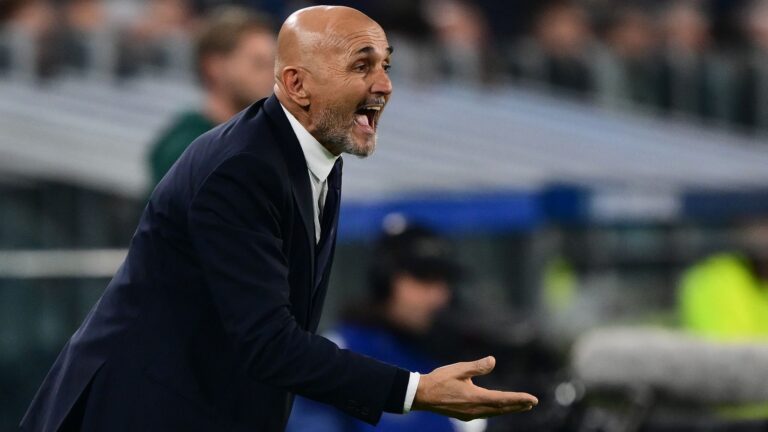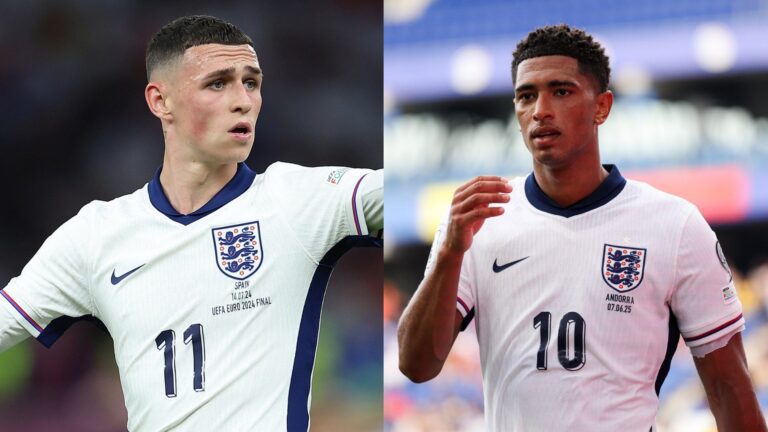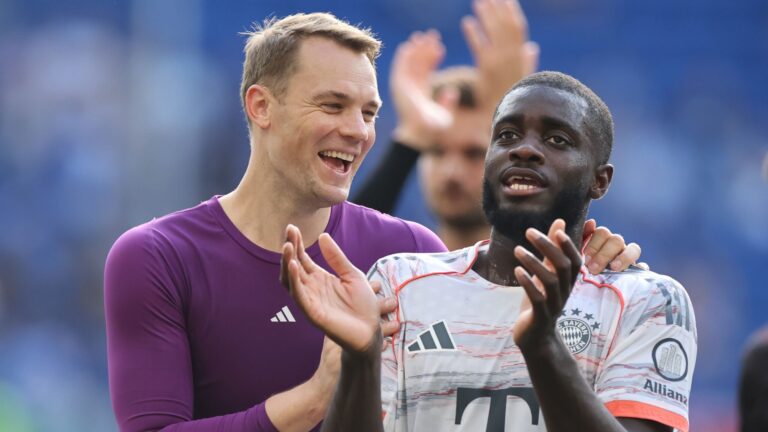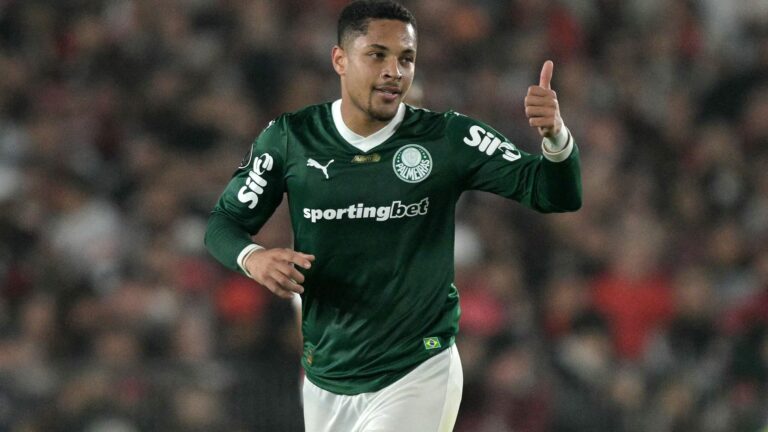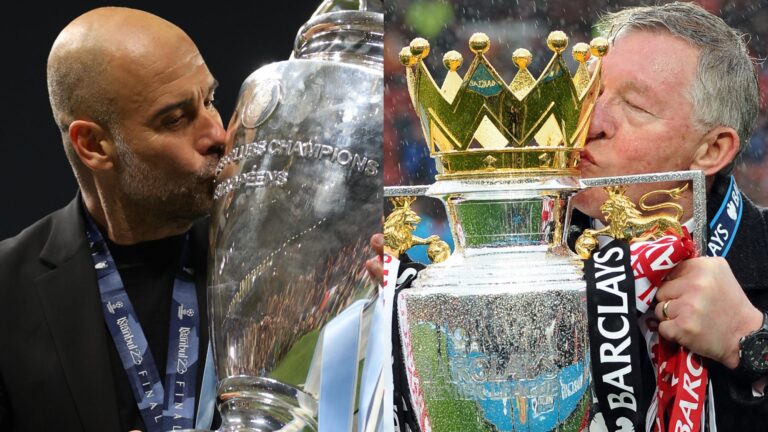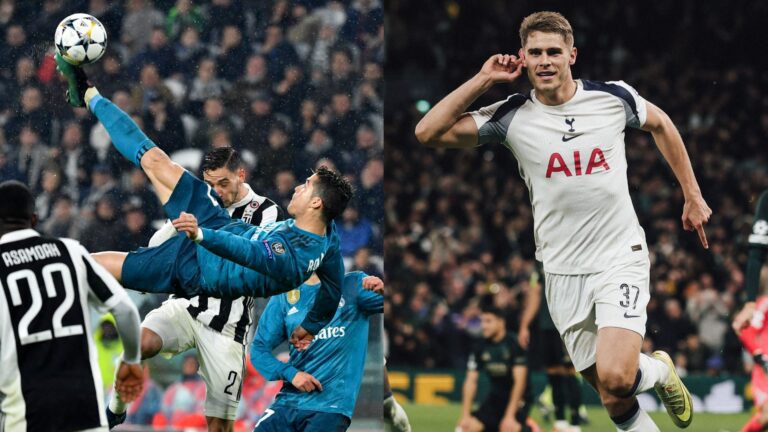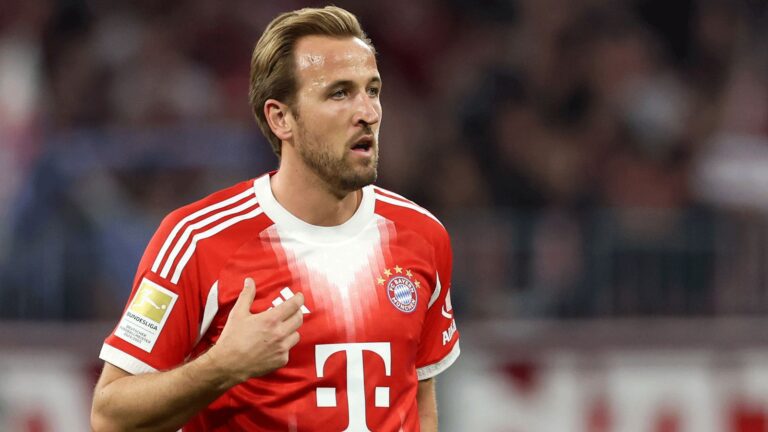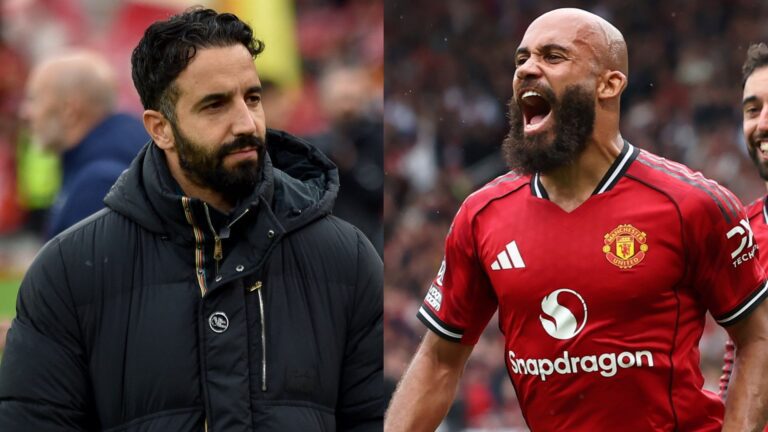Why Toni Kroos Is Challenging Hansi Flick’s El Clasico Defensive Tactics
Hansi Flick and Toni Kroos‘s ongoing debate over Barcelona’s strategy against Real Madrid highlights a critical moment in La Liga, where defensive choices can make or break a high-stakes match. The 2-1 loss at Santiago Bernabeu not only exposed vulnerabilities in Barcelona’s setup but also drew sharp criticism from Kroos, emphasizing the need for physical prowess to counter threats like Kylian Mbappe and Vinicius Jr.
Tactical Shortcomings in Barcelona’s High-Pressure Defense
The Catalan team’s 2-1 setback against Real Madrid has amplified scrutiny of Hansi Flick’s game plan, with the German manager observing from the sidelines due to his ban. Real Madrid’s attackers, including Kylian Mbappe and Jude Bellingham, dominated proceedings, delivering a resounding victory that left Barcelona struggling to keep up.
Breakdown of Barcelona’s Backline Under Intense Assault
Although Barcelona demonstrated flair in controlling the ball, their rear guard faltered against Real Madrid’s aggressive pace and swift shifts. Kroos, a former World Cup champion, expressed astonishment at Flick’s choice to field Eric Garcia with Pau Cubarsi, rather than the robust Ronald Araujo, who excels in speed and physical confrontations.
Kroos’s Critique of Center-Back Selections
Durante his appearance on the podcast Einfach mal Luppen, Kroos highlighted the illogic of Barcelona’s defensive alignment when facing Real Madrid’s offensive lineup, pinpointing the center-back pick as a key misstep. “I’m puzzled as to why Garcia is in the defensive heart,” Kroos remarked. “Technically, he edges out Araujo, yet Araujo brings the raw power needed to pursue rivals, particularly in a high defensive line. He’d have been perfect for this matchup and approach.”
The Impact of Missing Speed in Defense Against Star Attackers
Kroos further stressed how Barcelona’s slower defensive unit played right into Real Madrid’s strengths. “Facing players like Mbappe and Vinicius demands defenders with equivalent speed,” he noted. “Araujo fits that bill, and his exclusion was shocking to me.”
Struggles to Neutralize Madrid’s Dynamic Forwards
Throughout the encounter, Barcelona’s defenders found it tough to handle the explosive pairing of Vinicius and Mbappe, as Vinicius consistently pulled the defense apart and Mbappe capitalized on gaps. Flick’s omission of Araujo has left supporters and analysts perplexed, mirroring the wider view that Barcelona’s defensive framework was their undoing.
Underlying Issues in Barcelona’s Squad Structure
Beyond individual decisions, the 35-year-old Kroos identified deeper flaws in Barcelona’s defense, particularly the oversight in replacing Inigo Martinez after his move to Al-Nassr during the off-season.
The Void Left by a Key Defender
“I pointed this out earlier: Inigo Martinez was crucial,” Kroos observed. “Last season, he stood out as Barcelona’s top center-back for passing accuracy. He lacked top speed, but his defensive skills and possession play were outstanding. In the game against Real Madrid, his absence was evident amid their intense pressure, and not filling that gap is now affecting the team.”
Balancing Act Amid Team Setbacks
Still, Kroos recognized the challenges Flick encountered, stating: “It’s reasonable to note that Barcelona showed up undermanned, from the netminder to the manager, missing stars like Raphinha, Dani Olmo, and Lewandowski.” This evaluation reveals that Flick’s Barcelona side is still evolving this year, strong in ball control yet lacking equilibrium, especially defensively.
Post-Match Clashes and Emotional Aftermath
The game’s end saw emotions erupt as Real Madrid players engaged in a fiery dispute with Barcelona’s Lamine Yamal. Dani Carvajal challenged the young player, saying, “You’re all talk. Say it now,” alluding to Yamal’s earlier Twitch remarks implying “Real Madrid steal.” The situation intensified with Vinicius Jr. and Jude Bellingham getting involved until referees stepped in to diffuse it.
Consequences for Barcelona’s League Standing
This defeat positions Barcelona five points behind the league frontrunners at Real Madrid, compelling Flick to reevaluate his defensive lineup and overall tactics. The coach has admitted that Martinez’s departure was a significant loss and plans adjustments for future games. As Barcelona prepares for their upcoming La Liga encounter with Elche, they aim to rebuild confidence before the international pause, navigating a roster that’s gifted but vulnerable after this tough El Clasico defeat, with injuries and friction adding to the pressure.
Toni Kroos’ Critique of Hansi Flick’s Defensive Approach
The Backstory of El Clásico Showdown
El Clásico, the iconic rivalry between Barcelona and Real Madrid, has always been a stage for high-stakes soccer drama, where defensive strategies can make or break a team’s season. In a recent match, Toni Kroos, the former Real Madrid midfielder known for his tactical insights, publicly criticized Hansi Flick’s defensive setup for Barcelona. Kroos pointed out how Flick’s tactics failed to effectively neutralize the dynamic attacking duo of Kylian Mbappé and Vinicius Jr., leading to Barcelona’s defensive woes. This critique highlights ongoing challenges in modern soccer tactics, especially when elite forwards like Mbappé and Vinicius Jr. exploit gaps in a team’s structure.
Kroos, with his deep experience in high-pressure games, emphasized that Flick’s approach relied too heavily on a high defensive line without adequate cover, which is a common pitfall in El Clásico encounters. Keywords like “Hansi Flick defensive strategy” and “Barcelona’s failure to contain Mbappé” have been buzzing in soccer forums, as fans and analysts dissect what went wrong. It’s fascinating to see how these tactical decisions ripple through the game, affecting everything from player positioning to overall team morale in matches like El Clásico.
Breaking Down Barcelona’s Defensive Failures
Flick’s defensive system, often praised for its intensity in pressing, showed clear vulnerabilities during the match. One major issue was the lack of adaptability against Real Madrid’s fluid attack, where Mbappé and Vinicius Jr. consistently found space. Kroos, drawing from his own playing days, argued that Barcelona needed a more balanced setup, perhaps incorporating a mid-block to limit counter-attacks.
- Over-reliance on High Pressing: Barcelona’s high defensive line aimed to win the ball quickly, but it left them exposed to through balls and pacey runs. This tactic worked in some games, but against players like Mbappé, who thrive on speed, it backfired spectacularly.
- Poor Marking and Communication: In key moments, defenders struggled with one-on-one situations. For instance, Vinicius Jr.’s ability to dribble past multiple players exposed gaps in Barcelona’s zonal marking system.
- Lack of Midfield Support: Without sufficient help from midfielders, Barcelona’s backline was isolated, making it easier for Real Madrid to penetrate.
These elements of Flick’s strategy have been under the microscope, with SEO-friendly terms like “Toni Kroos criticizes El Clásico tactics” gaining traction online. It’s worth noting that similar defensive issues have plagued other teams facing top attackers, underscoring the need for versatile strategies in elite soccer.
How Mbappé Slipped Through the Cracks
Kylian Mbappé’s performance in El Clásico was a textbook example of why defensive strategies must evolve. Flick’s setup, which prioritized width over central control, allowed Mbappé to exploit the channels on the wings. Kroos highlighted in interviews that Barcelona’s full-backs were too advanced, leaving Mbappé with acres of space to accelerate into.
In this match, Mbappé scored twice, largely due to poorly coordinated offside traps-a staple of Flick’s defensive philosophy that didn’t hold up against Real Madrid’s precision passing. Analysts have pointed out that keywords such as “Mbappé El Clásico dominance” reflect how his speed and finishing ability can dismantle even the best-planned defenses. To counter this, teams might need to focus on man-marking or double-teaming stars like Mbappé, as Kroos suggested.
- Speed Exploits: Mbappé’s bursts of speed overwhelmed Barcelona’s recovery runs, turning simple passes into goal-scoring opportunities.
- Finishing in Tight Spaces: Despite Flick’s efforts to crowd the box, Mbappé’s clinical nature meant that any sliver of space was capitalized on.
- Psychological Edge: Being able to break through defenses repeatedly can demoralize opponents, which Kroos noted as a key factor in Real Madrid’s victory.
Vinicius Jr.’s Impact and Tactical Oversights
Vinicius Jr., another thorn in Barcelona’s side, showcased why Kroos believes Flick’s strategy was flawed. The young Brazilian’s dribbling prowess and one-on-one skills were not adequately addressed, leading to multiple dangerous crosses and shots. Kroos specifically called out the failure to contain Vinicius Jr. as a “missed opportunity” for Barcelona to control the game’s tempo.
Flick’s defensive line, designed for quick transitions, didn’t account for Vinicius Jr.’s ability to cut inside from the flanks, creating overloads in midfield. This has sparked discussions around “Vinicius Jr. El Clásico highlights,” a top search term for fans reliving the match. In a conversational tone, it’s like watching a magician pull rabbits out of hats-Vinicius Jr. keeps finding ways to bewilder defenses, and Barcelona just couldn’t keep up.
- Dribbling Mastery: Vinicius Jr. completed over 80% of his dribbles, directly attributing to Real Madrid’s offensive flow and exposing Barcelona’s slow reactions.
- Combination Play: His link-up with teammates, including Mbappé, overwhelmed Flick’s midfield cover, leading to unchecked attacks.
- Set-Piece Vulnerabilities: Even in dead-ball situations, Vinicius Jr.’s positioning caught Barcelona off guard, another area Kroos flagged as needing improvement.
Lessons from Kroos’ Tactical Analysis
Delving deeper into soccer tactics, Kroos’ criticism offers valuable insights for coaches and players alike. He suggested that a hybrid defensive approach, blending man-marking with zonal play, could have better handled threats like Mbappé and Vinicius Jr. This is particularly relevant in El Clásico, where matches often hinge on fine margins.
For readers interested in optimizing their own understanding, consider how phrases like “Hansi Flick tactical failures” can lead to deeper research on platforms dedicated to soccer analytics. Kroos’ comments, shared via social media and press conferences, remind us that even experienced coaches like Flick must adapt to the evolving styles of players in the modern game.
- Adaptation Tips for Defenses: Coaches should prioritize scouting reports on key opponents and adjust formations accordingly.
- Training Drills: Focus on high-speed recovery runs and decision-making under pressure to counter players like Mbappé.
- Long-Term Strategy: Building a squad with versatile defenders can prevent over-reliance on a single tactical style.
By examining these aspects, fans can appreciate the nuances of El Clásico and why Toni Kroos’ critique resonates so widely. This level of tactical depth not only enhances viewer engagement but also underscores the importance of strategic flexibility in high-level soccer. (Word count: 752)


